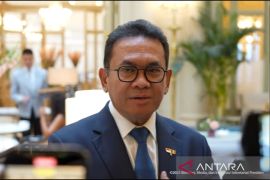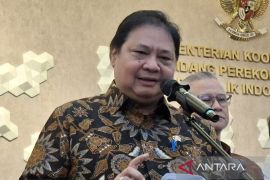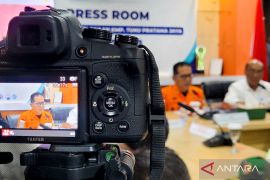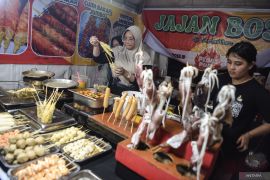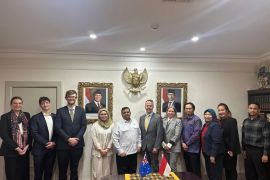The loss is up compared to the result of MIAP survey in 2010 that estimated the loss to Rp43.2 trillion, MIAP secretary general Justisiari P Kusumah said here on Wednesday.
"Nominally the number of forgery cases has risen 1.5 times with the last five years," she said when presenting the result of a study on the impact of forgery on Indonesias economy in 2014.
The study carried out in cooperation with the economic faculty of state Universitas Indonesia revealed seven commodities that have often been recorded to suffer the most forgery are software, cosmetics, pharmaceutical products, clothes, leather goods, food and beverages and printer ink.
She said forgery of printer ink reached 49.4 percent, clothes 38.90 percent, leather goods 37.20 percent, software products 33.50 percent, cosmetics 12.60 percent, food and beverages 8.50 percent.
Justisiari said the forgery of products has caused a loss on the economy especially on tax revenue reaching Rp424,856 million.
The loss caused by fake food and beverage products in tax terms was recorded at Rp155,147 million, clothes and leather goods Rp191,993 million, pharmaceutical products and cosmetics Rp42,079 million, software and ink products Rp35,639 million.
She said the state also suffered a loss of Rp3,395,887 million due to a loss of employment opportunities.
She said the MIAP study involved end consumers and consumers in between sellers and retail traders.
The research, she said, was focused on two consumers namely the ones who bought for personal use and the ones who bought products to be traded.
Adjunct Senior Commissioner Rusharyanto from the Sub-Directorate of Industry and Trade of the National Police Headquarters said his side had continued to conduct investigation and education against the use of brands illegally and fake products.
"We successfully confiscated fake lubricating oils from shops and automotive shopping centers in various parts in Jakarta recently," he said.
He said the issue of fake products such as fake lubricating oil products was a serious one and had become the polices focus because it did not only violate the rights of brand owners but also users.(*)
Editor: Heru Purwanto
Copyright © ANTARA 2015

